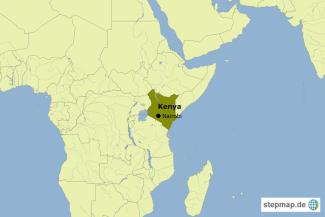Informal sector
Broadening the tax base by registering informal workers

As payments are mostly made in cash, business records are poor and many entities are not registered. Undocumented transactions, however, often prove impossible to tax. At the same time the people concerned typically do not benefit from government-sponsored social protection or any kind of private insurance coverage. Livelihoods in the informal sector are mostly precarious. Things are similar in many developing countries, especially in Africa and South Asia (for the example of Pakistan, see Marva Khan on www.dandc.eu).
As informal workers’ incomes are unpredictable, their families live hand to mouth. One implication is that attempts to enforce tax legislation across the entire informal sector is likely to cost more money than actually bypasses tax collection. To actually improve government revenues, as Kenya’s government intends to do (see main story), the challenge is thus to include those people in the system who can afford to pay without unduly burdening those who cannot.
According to Kenyan law, all adults must register with the tax agency and obtain a personal identification number. However, people who do not rely on the financial-service industry never need that identification number in their daily lives, so many remain unregistered.
Only 6 million registered taxpayers
So far, there are only 6 million registered taxpayers, of whom 3 million enjoy formal employment and another 3 million work in the informal sector. An estimated 15 million informal workers, however, are not covered.
The tax authority intends to recruit 2 million more taxpayers in the next two years. Ruto’s plan is to set up a special fund to give low-interest loans to the bottom-of-the-pyramid “hustlers”, such as street vendors, handcart pushers or boda boda operators (passenger-carrying motorcyclists). To access the new government fund, these persons will need a bank account, and to get one, they will have to register as taxpayers. Ultimately, value-added and income taxes can be collected as they do business to service their government loans.
This approach is smart and growth-oriented. It aims to boost an informal business to make it strong enough to pay taxes before actually charging taxes. At the same time, it makes the tax base broader and more promising in the long run.
Alphonce Shiundu is a journalist, editor and fact-checker in Kenya.
Twitter: @Shiundu













